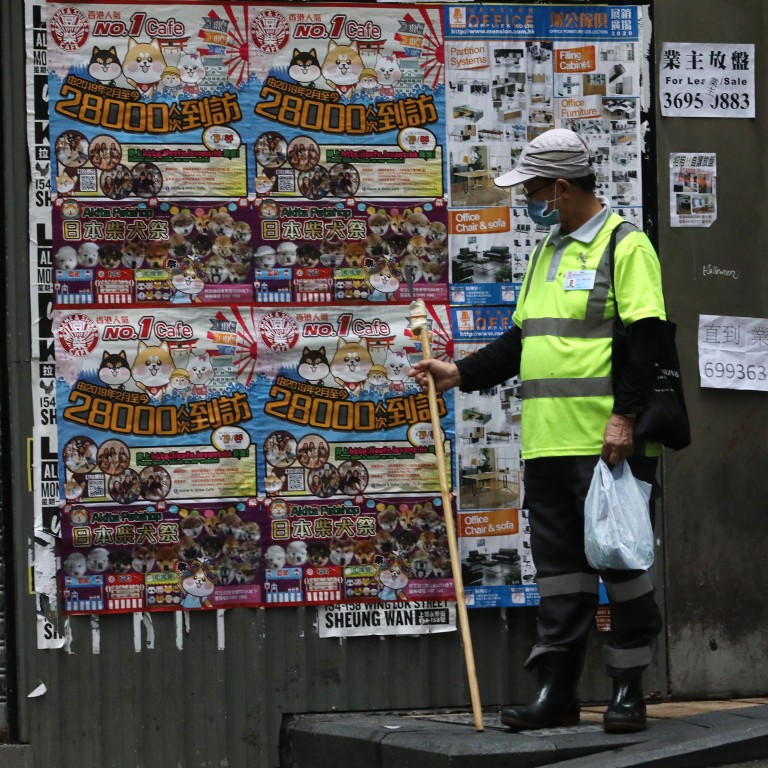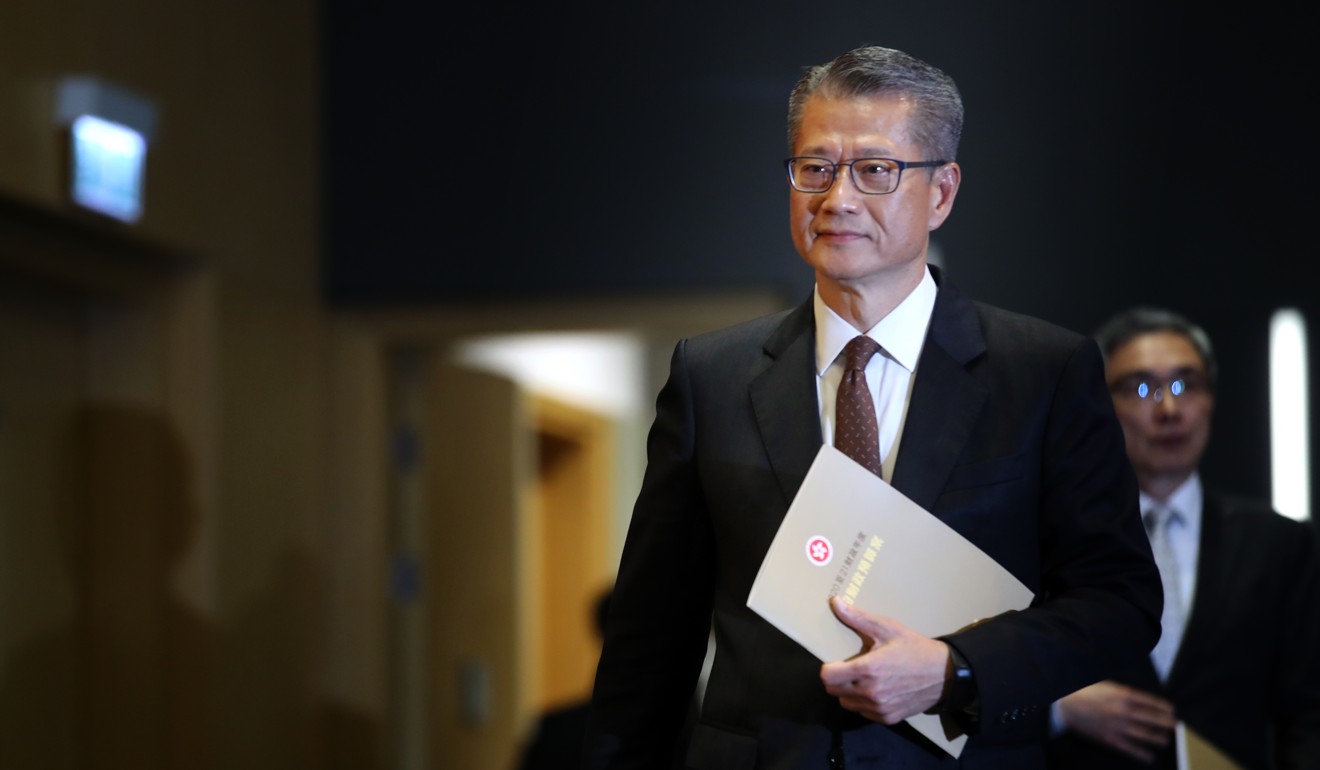
Coronavirus’ economic impact worse than during Sars outbreak, says Hong Kong finance chief Paul Chan
- Financial Secretary Paul Chan says the unemployment rate, already at a nine-year high, is likely to increase
- Calling on the finance sector to lend a hand, he notes ‘many small and medium-sized enterprises in many industries are experiencing a cliff-edge fall in business’
Hong Kong’s finance chief has acknowledged that the economic impact of the coronavirus outbreak has been bigger than when Sars hit in 2003, as he warned the jobless rate would continue to surge in the near future.
Five days after the city announced unemployment was at 3.7 per cent – a nine-year high – Financial Secretary Paul Chan Mo-po wrote on his official blog that the worst was yet to come.
The contagion, which by Sunday had infected 317 people in the city with four related deaths, has ground much economic activity to a halt, with almost all tourists deterred from visiting, many events cancelled, and shops, restaurants and other venues struggling as people stay at home.
“The economic situation is more severe than in Sars. Many small and medium-sized enterprises in many industries are experiencing a cliff-edge fall in business,” Chan said, adding that companies faced ruptures in the capital chain, while staff are forced to take unpaid leave or a pay cut, or even face dismissal.
Chan cited figures showing how the ongoing pandemic has buffeted the economy. Price volume in Hong Kong’s retail sector has plunged for a year, while quantity volume dropped by between 18 per cent and 24 per cent for the past half-year. Chan expected the retail sales figures for February, to be announced by the end of the month, would not show any improvement.
He noted that the 3.7 per cent jobless rate this month meant 130,000 people were unemployed, 12,000 more than the previous month.
Among hardest-hit industries was the consumption and tourism sector, which recorded a 10-year-high unemployment rate of 6.1 per cent, while the rate in the construction sector was 6.8 per cent.
“Our economy is in dire straits, and figures have shown the situation is worsening … we expect the latest [unemployment] figures have not reflected the latest developments caused by the pandemic. The unemployment rate will continue to rise in the short term,” Chan said.
Hong Kong records 44 new coronavirus cases, including 20-month-old child
The unemployment rate reached an all-time high of 8.5 per cent in June 2003, as Hong Kong was battered by the severe acute respiratory syndrome (Sars) outbreak, which infected 1,755 people locally, killing 299.
Chan appealed to the financial industry to help out in times of trouble, by helping enterprises with capital needs, and acting fast to support loan applications.
Meanwhile, shops will be able to apply for a one-off cash subsidy from Monday, according to Chief Secretary Matthew Cheung Kin-chung.
A sum of HK$5.6 billion was earmarked under the HK$30 billion epidemic fund for the scheme, which is expected to benefit about 70,000 retailers. The maximum subsidy amount for a parent company that operates retail groups or chain stores under the same business registration is HK$3 million.
The first tranche of payments will be made in April, Cheung wrote on his official blog.
Hong Kong’s economy is reeling from the US-China trade dispute, anti-government unrest last year and now the coronavirus — a triple whammy which has created a situation Chan described as “exceptionally austere” as he delivered his annual budget last month.

On his blog, Chan added that the months-long protests were also the main reason behind Hong Kong losing its top spot in a ranking of the world’s freest economies, a position the city held for 25 straight years, in the report announced by the Heritage Foundation think tank last week.
In the report, Hong Kong was pulled down by a decline in its investment freedom score, which stood at 80, compared with 90 last year. Overall, Singapore scored 89.4, climbing to first place, beating Hong Kong’s 89.1.
“Society has to let go of disagreements and to stop self-harming,” Chan added.
Purchase the China AI Report 2020 brought to you by SCMP Research and enjoy a 20% discount (original price US$400). This 60-page all new intelligence report gives you first-hand insights and analysis into the latest industry developments and intelligence about China AI. Get exclusive access to our webinars for continuous learning, and interact with China AI executives in live Q&A. Offer valid until 31 March 2020.

